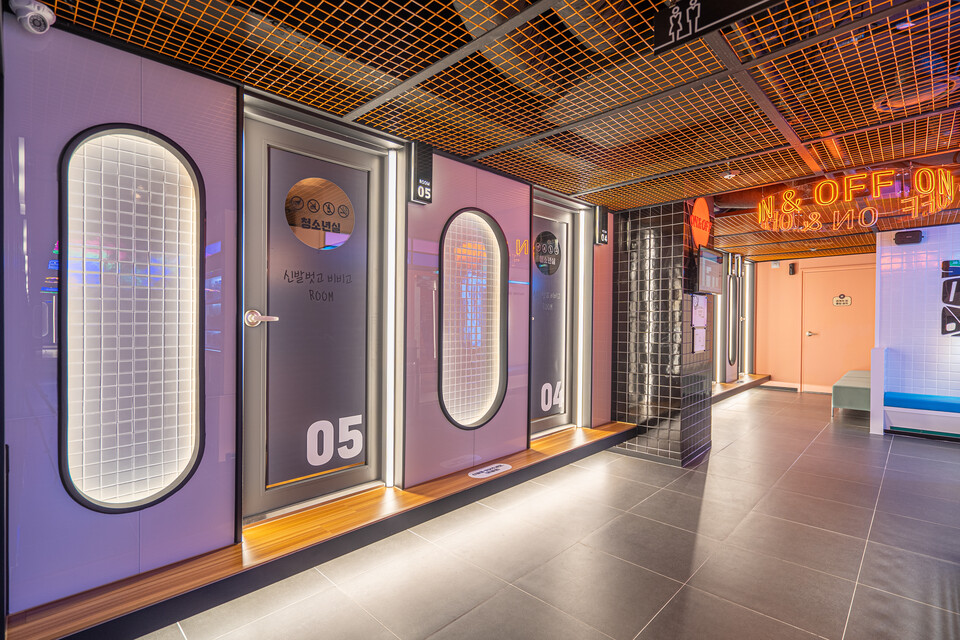Maratang, Tanghulu are Old News! How South Korea's 1020 Generation Spends Money and Plays

Hello, canadatokorea.com readers! Many people are curious about where, what, and how South Korea's teens and twenties (the 1020 Generation) are spending their time. A few years ago, the fixed course of Maratang - Tanghulu - Coin Karaoke - Life Four Cuts seemed clear, but Korean trends are changing faster than you can imagine! Crucially, as the cycle of social media content dictates the cycle of trends, a phenomenon is becoming entrenched where business items that are easy to start up quickly sweep the nation and then disappear. We have analyzed the rapid consumption patterns and leisure culture of this generation.
1. 🔥 K-Food Trends: Hyper-Fast Cycles and 'Yoajeong'
The 1020 generation's food trend is the most unpredictable and fastest-moving.
• Succession of the Tanghulu Throne: Tanghulu, which dominated the dessert market last year, is already declining. The new heir to the throne is 'Yoajeong' (Yogurt Ice Cream's Standard).
• The Key is Customization: Yoajeong's success lies in 'customization'—the ability for customers to choose their favorite toppings to create their own ice cream. Despite criticisms of high prices for the quantity, the brand’s growth has been remarkably fast.
• The Secret to Fast Trends: Due to the short lifecycle of trends, entrepreneurs need business models that allow for quick store openings before the trend dies. This explains why brands like Tanghulu and Yoajeong stick to small-store, takeout/delivery-focused concepts (reducing deposit, interior, and labor costs). Business models that facilitate quick, short-term startups are expected to be the future trend.
2. 🎭 Polarization of Leisure: Spending for 'Experience'
The leisure culture of the 1020 generation is polarizing into two axes: cost-effective 'private space' and high-value 'premium experience.'
Preference for Cost-Effective & Private Spaces
• Coin Karaoke's Victory: Traditional karaoke rooms largely failed during the COVID-19 pandemic, and Coin Karaoke (Kono) has become the mainstream. Its popularity stems from its efficiency: small, private rooms, and the ability to pay only for what you use. • Secluded Spaces: Board game cafes, comic book cafes, and escape room cafes—which offer 'secluded' spaces where friends can spend quality private time by closing a door or a curtain—remain popular.
Growth of Premium Cultural Life
• Surpassing the Cinema Market: The size of South Korea's performance market (concerts, musicals) officially exceeded the cinema market for the first time last year. K-Pop concerts and the musical market, in particular, show overwhelming growth.
• Value of Experience and Scarcity: While cinemas have a strong substitute (Netflix), performances offer the scarcity and premium value of 'a moment's experience that cannot be replayed.' This reflects a consumption pattern where they are willing to pay high prices for experiences that 'enhance their personal value.' (Instagram proof is a must-have element.)

3. 📍 Current Hotspots and Soaring Dating Costs
The Youth Hub: Mapo-gu's Hongdae Commercial District
The area where the 1020 generation gathers most in Seoul is the Mapo-gu Hongdae commercial district. It remains a playground for youth, expanding from Hongdae to Hapjeong, Sangsu, Yeonnam, and Mangwon. • Center of Saengka Tours: One reason Hongdae remains hot is the culture of 'Birthday Cafe Tours (Saengka Tours)'. K-Pop fans tour multiple cafes during an idol's birthday week to take 인증샷 (proof shots), and Hongdae hosts the most of these 'Saengka' events. [홍대 거리의 생일 카페 인증샷 사진_번역시에도한글로]
Rising 'Experience' Costs and Date Bank Accounts
Leisure costs in Korea have reached their highest rise in 27 years. • The Reality of Dating Expenses: The average date cost is about 80,000 KRW for a couple in their 20s, but it's easy to exceed 100,000 KRW for just one meal and a simple cultural activity. • Spread of 'Date Bank Accounts': As the financial burden of dating grows, couples are increasingly creating 'Date Bank Accounts'—often managed using mobile technology like KakaoTalk—to pool and manage dating funds. In conclusion, the Korean 1020 generation is one that does not hesitate to spend if the 'experiential value' is certain, even if the price is high. They prioritize Ga-Shim-Bi (Cost-Effectiveness for Psychological Satisfaction), focusing on spending money to enhance their memories and personal value.
